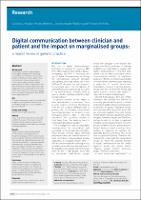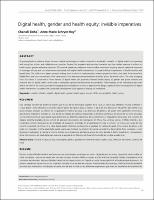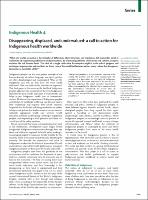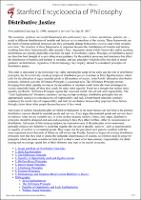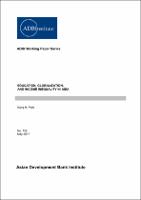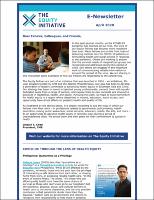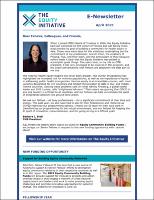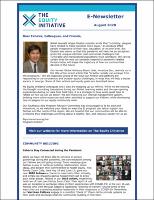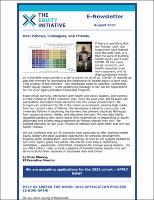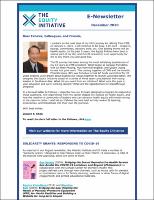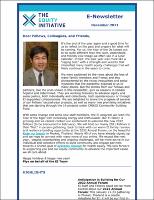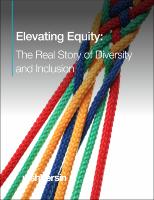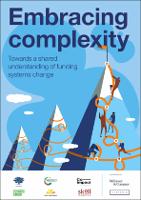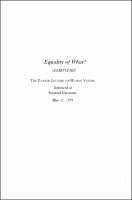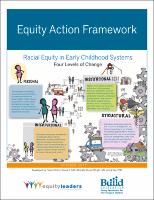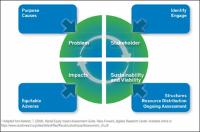Browsing by Title
Now showing items 63-82 of 229
-
Digital communication between clinician and patient and the impact on marginalised groups: a realist review in general practice
(British Journal of General Practice, 2015-12)
Background Increasingly, the NHS is embracing the use of digital communication technology for communication between clinicians and patients. Policymakers deem digital clinical communication as presenting a solution to the capacity issues currently faced by general practice. There is some concern that these technologies may exacerbate existing inequalities in accessing health care. It is not known what impact they may have on groups who are already marginalised in their ability to access general practice. Aim To assess the potential impact of the ... -
Digital health, gender and health equity: invisible imperatives
(Journal of Public Health, 2018-12-01)
A growing body of evidence shows the use of digital technologies in health—referred to as eHealth, mHealth or ‘digital health’—is improving and saving lives in low- and middle-income countries. Despite this prevalent and persistent narrative, very few studies examine its effects on health equity, gender and power dynamics. This journal supplement addresses these invisible imperatives by going beyond traditional measures of coverage, efficacy and cost-effectiveness associated with digital health interventions, to unpack different experiences of ... -
Distributive Justice
(2017-09-26) -
Economists: Your Parents Are More Important Than Ever
(the Atlantic) -
Education, Globalization, and Income Inequality in Asia
(Asian Development Bank Institute, 2017-05)
This study considers how education and globalization affect income inequality in Asia, with unbalanced panel data. The evidence supports the validity of Kuznets’ inverted-U hypothesis for the connection between income level and income inequality. However, when more variables are integrated into the model, the consistency of the inverse U-shaped curve becomes weaker. The empirical results suggest that educational variables are highly influential in affecting income distribution. Our analysis indicates that a higher level of education achieved by ... -
EI Annual Forum 2022: Welcome Video
(The Equity Initiative, 2022-01-21) -
EI Newsletter: April 2020
(The Equity Initiative, 2020-04) -
EI Newsletter: April 2021
(The Equity Initiative, 2021-04) -
EI Newsletter: April 2022
(The Equity Initiative, 2022-04) -
EI Newsletter: August 2020
(The Equity Initiative, 2020-08) -
EI Newsletter: August 2021
(The Equity Initiative, 2021-08) -
EI Newsletter: December 2020
(The Equity Initiative, 2020-12) -
EI Newsletter: December 2021
(The Equity Initiative, 2021-12) -
EI Virtual Annual Forum 2021
(The Equity Initiative, 2021) -
Embracing complexity Towards a shared understanding of funding systems change
(2020-01)
The report is the result of collaboration between Ashoka and McKinsey & Company, as well as social entrepreneurs from Catalyst 2030, Co-Impact, Echoing Green, Schwab and Skoll and SystemIQ. How can systems change across the world be financed more effectively? How can change be better supported for the benefit of society? “Embracing complexity – Towards a shared understanding of funding systems change” provides donors and investors, as well as charitable initiatives and organizations, with answers to these questions. A clearly defined vision, ... -
Equality of What?
(Cambridge: Cambridge University Press., 1979)
Well-being is not just a question of the wealth or pleasure that a person has; it is a question of how people manage to live their lives and the ability they have to do certain things that are important to them. This was the argument put forward by Professor Amartya Sen in 1979. In his seminal Tanner Lecture – ‘Equality of What?’, Sen unites economics and philosophy to explore how a person’s well-being might best be measured. It was the first in a series of writings in which he developed his capability approach. This focuses on the actual capability ... -
Equity Action Framework
(2017)
Th e Equity Action Framework1 is designed to support individuals and groups that want to advance racial equity in early childhood systems. Th e goal of a racial equity approach is to develop policies, practices, and programs that provide opportunities, promote fairness and access, and remediate racial inequities. Whether working at national, state, county, or municipal levels of government, in private-public partnerships, community organizations, foundations or other entities, the Equity Action Framework provides an intentional process for ... -
Equity Action Framework
(Race forward, 2009)

